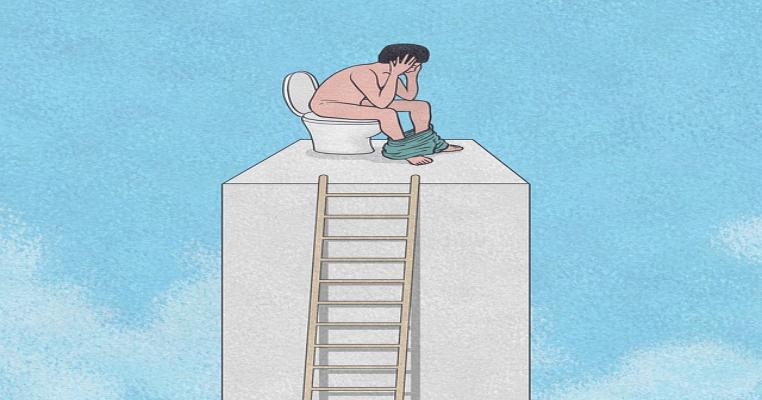Is Constipation Affecting Your Prostate?
Date:2022-07-30 click:0
Prostatitis is a common inflammation of the urinary system, which generally causes discomfort in the patient's urethra. Constipation is a common symptom of gastroenterology, and many diseases can cause constipation.

So, is there a link between constipation and prostatitis?
Chronic constipation can damage the prostate. The prostate is close to the rectum, with only a tiny amount of loose connective tissue separated. This feature brings convenience for doctors to perform a digital prostate examination and can touch the prostate not far from the anus. But it also lays a hidden danger for the prostate health of constipated patients.
Long-term constipation will aggravate the symptoms of prostatitis. From the anatomical perspective, the prostate and rectum are located in the pelvic cavity, with only one rectal wall between them. When the patient is constipated for a long time, the rectum stores a lot of stool, the stool is dry, and even the stool has hard lumps, which will directly oppress the prostate, cause poor blood circulation in the prostate, and then aggravate prostatitis.
Moreover, the increased pelvic pressure of constipated patients during defecation may affect pelvic blood circulation and prostate congestion, resulting in various chronic prostatitis symptoms.
In addition, patients with constipation need to increase abdominal pressure to push the stool out during defecation, which will further cause stress on the prostate, causing discomfort in urination, and sometimes even "white dripping," that is, the outflow of prostatic fluid.
Because the longer the patient is constipated, the greater the pressure on the prostate will be, which will affect the pelvic area of men, causing problems in the blood circulation of the lower abdomen, and the prostate organ of men, leading to prostatitis. These are common clinical phenomena.
Men with constipation often have dry stools due to staying up late, sitting for a long time, lack of exercise, and eating spicy and greasy food, and these incentives can also cause symptoms of the prostate. Therefore, constipation is a wake-up call for these people, prompting them to protect prostate health.
If prostatitis has occurred due to constipation, the primary treatment task is to improve the condition and treat it in time.
Prostate massage is one of the traditional treatment methods. Studies have shown that proper prostate massage can promote prostate gland duct emptying and increase local drug concentration, thereby relieving symptoms in patients with chronic prostatitis. But it is not suitable for acute prostatitis.
Hyperthermia (physical therapy) mainly uses the thermal effect produced by various physical means to increase the blood circulation of the prostate tissue, accelerate metabolism, help reduce inflammation, eliminate tissue edema, and relieve pelvic floor muscle spasms. It can somewhat alleviate symptoms in the short term, but the long-term effect is unclear. This method is not recommended for unmarried and nulliparous persons.
However, in actual clinical practice, prostatitis patients with a single syndrome are rarely seen, and most of them are complex situations with two or more syndromes presenting together. Therefore, self-treatment may not be enough. The advantage of TCM in treating chronic prostatitis lies in the concept and treatment based on syndrome differentiation. Thus, in clinical practice, it is often advocated to choose traditional Chinese medicine Diuretic and Anti-inflammatory Pill to solve various complications and effectively treat prostatitis.
There is a specific correlation between constipation or other intestinal diseases and chronic prostatitis. Patients need to improve the bad habit of constipation while treating prostatitis.
How to improve constipation?
1. Developing good bowel habits. When people wake up, having a bowel movement is the most appropriate time. It is best not to exceed 15 minutes per bowel movement. A normal bowel movement can certainly be completed within 15 minutes, and the longer it takes, the less it will be able to pass, increasing anxiety and a vicious circle. Stool stays in the body for too long and is more likely to cause constipation. The normal bowel movement cycle is 24 to 48 hours.
2. Changing bad eating habits. Patients need to drink more water and less alcohol, eat more fruits and vegetables and avoid spicy food.
3. Moderating exercise. Moderate exercise has many benefits. It can enhance people's heart and lung function, relieve tension and anxiety, increase energy consumption, help lose weight, and thus help relieve constipation.
Recommended Readings:



